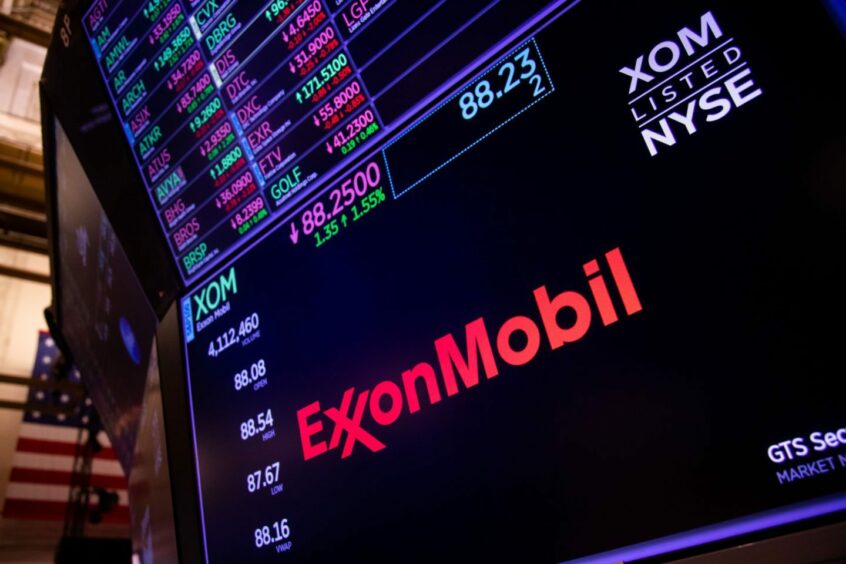
Exxon Mobil filed a lawsuit against US and Dutch climate activist investors in an effort to remove what it describes as their “extreme agenda” from the ballot at its annual shareholder meetings, and force a stricter interpretation of SEC rule-making.
The Texas oil giant is seeking a declaratory judgment from the US District Court in Fort Worth to exclude from its annual meeting this year a proposal from Follow This and Arjuna Capital LLC to accelerate greenhouse-gas emission cuts.
Exxon (NYSE: XOM) argues that a judgment in its favor would tighten the Securities and Exchange Commission’s interpretation of the rules around what proposals get on proxy ballots across corporate America.
Follow This and Arjuna Capital have “become shareholders solely to campaign for change through shareholder proposals that are calculated to diminish the company’s existing business,” Exxon said in the complaint. They “are aided in their efforts by a flawed shareholder proposal and proxy voting process that does not serve investors’ interests and has become ripe for abuse.”
Exxon’s decision to seek legal judgment rather than go through the SEC is highly unusual and marks an aggressive pushback against climate activists who use shareholder voting to influence boardroom strategy. It also comes as the US Supreme Court questions a longstanding legal doctrine known as the “Chevron doctrine” that gives federal agencies wide latitude to interpret unclear mandates from Congress.
The lawsuit is a “remarkable step,” Follow This founder Mark van Baal said in a statement. “ExxonMobil clearly wants to prevent shareholders using their rights. Apparently, the board fears shareholders will vote in favor of emissions reductions targets,” he said.
Arjuna did not respond to a request for comment outside of normal office hours.
Last month, Follow This and Arjuna submitted a proposal calling for a “further accelerating” of Exxon’s emission reduction plans that include Scope 3 emissions, in other words the pollution from customers burning the company’s oil and gas. Chief Executive Officer Darren Woods is a vocal critic of Scope 3 emissions accounting, saying it’s misleading and doesn’t capture overall emission-reduction efforts. A similar proposal last year gained just over 10% of shareholder support, down from 27% in 2022.
“The 2024 Proposal does not seek to improve ExxonMobil’s economic performance or create shareholder value,” the company said in the complaint. “Like the previous proposals, it is designed instead to serve Arjuna’s and Follow This’s agenda to “shrink” the very company in which they are investing.”
Exxon is seeking to have the proposal excluded on two counts: that it interferes with the ordinary course of business, and that shareholders have rejected similar proposals multiple times. Exxon was one of the highest profile targets of the ESG movement, losing a proxy battle against first-time activist Engine No. 1 in 2021, which forced it to replace a quarter of its board with new directors. Engine No. 1 isn’t named in the complaint.
Proposals by Amsterdam-based non-profit Follow This and Massachusetts-based Arjuna Capital have become a fixture on the ballots of Big Oil’s annual meetings, mostly encouraging oil majors to set greenhouse gas emission targets that align with the Paris Agreement. While most proposals have been rejected, support steadily rose from 2015 through 2021 before dropping more recently.
Since the investors began their campaigns nearly a decade ago, all five Western oil majors have set ambitious emissions targets for 2050, with Shell Pfc and BP Plc taking heed of activists’ recommendations to reduce customers’ emissions. Exxon has an ambition to become net zero by 2050 for Scope 1 and Scope 2 emissions, in other words the pollution from its production processes and the energy it consumes. But the company has rejected all targets associated with pollution caused by the use of its oil and gas.
